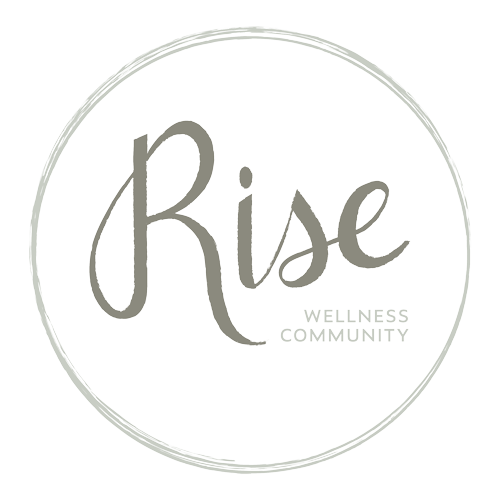Oils & Psychology: Are they really anything more than just a pretty scent?
Have you ever experienced a particular smell that immediately evoked an emotional state or perhaps transported you to a particular memory, person or place?
I sure have. As a carpenter’s daughter, the smell of fresh sawdust never fails to flood in memories of childhood mischief on many a job-site; while cinnamon takes me right back to Christmas in the warmth of mum’s kitchen as we balled up Snickerdoodle’s side by side.
But could essential oils really be more than just a pretty smell? Evidence suggests yes, they can! Here is a tiny peek into the process behind why:
“When we inhale the fragrance of an essential oil, the odor molecules travel up the nose where they’re registered by the nerves of the olfactory membranes in the nose lining. The molecules stimulate this lining of nerve cells and trigger electrical impulses to the olfactory bulb in the brain. The bulb then transmits the impulses to the amygdala — where emotional memories are stored — and to other parts of the limbic system of the brain. Because the limbic system controls heart rate, blood pressure, breathing, memory, stress levels, and hormone balance, essential oils can have profound physiological and psychological effects. Olfactory responses to odors induce the brain to stimulate the release of hormones and neurochemicals that in turn alter the body’s physiology and behaviour”. -Essential Oil Desk Reference, 4thEdition
So what does actually that mean for real life?
Basically, it means an essential oil with the right molecular structure can stimulate certain parts of the brain to  support a desired emotional response. Whether your intention is to soothe a child after a negative experience at school, calm an agitated family elder frustrated by confusion & memory loss, enhance concentration for an important deadline, gently process emotional trauma or grief, encourage confidence & self-worth before an interview or competition, or to support bonding & attachment as a new mother just to name a few; essential oils can certainly play a beneficial role.
support a desired emotional response. Whether your intention is to soothe a child after a negative experience at school, calm an agitated family elder frustrated by confusion & memory loss, enhance concentration for an important deadline, gently process emotional trauma or grief, encourage confidence & self-worth before an interview or competition, or to support bonding & attachment as a new mother just to name a few; essential oils can certainly play a beneficial role.
Significant studies exist to support these findings and our mainstream clinical counseling community is becoming increasingly on board with acknowledging the benefits.
Evidenced-based psychological modalities can be greatly complimented by the use of essential oils where appropriate. For example, cognitive behavioral therapy, gradual exposure therapy, narrative therapy and mindfulness techniques can all potentially be enhanced if practiced with particular oils. Referred to as associative learning, linking the scent during the successful learning of a coping mechanism fosters the same success when confronted with a real trigger. Associative learning can also enhance everyday life skills such as preparing for a presentation, practicing breath work for calm-birth, dealing with work-related conflicts, supporting a child dealing with school-related stressors and beyond.
It’s important to note essential oils are a fairly unregulated product; due to the lack of regulations and their growing popularity, it’s very common and perfectly legal for an oil to be labeled ‘100% pure therapeutic grade, organic’ etc… even if up to 95% is filler.

If the plants are not grown, harvested and distilled using the appropriate scientific methods, you will not experience these benefits and Essential Oils will indeed be just a pretty scent, possibly even a toxic one. Trust your source and ask if you would like to know why I trust mine.
A secondary benefit of everyday oil use, is they provide the opportunity to ‘switch & ditch’ toxins thus reducing risk of neurotoxicity & the mental health consequences associated with it. Every single ingredient we put on our skin or breath in our homes, is either adding toxins to our systems or not; please read your labels & if you’re not sure what’s safe, plug ingredients into an independent 3rdparty safety rating source such as:
A few favorite oils & blends to support particular emotions:
- Grounding/Balance: Frankincense, Vetiver, Awaken, Cedarwood, Ylang Ylang, Acceptance, Harmony,
 Lavender, AromaEase
Lavender, AromaEase - Grief/Sorrow: Bergamot, Forgiveness, Hope, Juniper, Release, White Angelica, Tangerine
- Joy/Contentment: Lemon, Bergamot, Orange, Joy, Motivation, Sacred Mountain, Sandalwood
- Confidence/Self Worth: Valor, Jasmine, Live with Passion, Shutran, Build Your Dream, Sandalwood, Envision, SARA
- Postpartum Bonding/Mood/Self-Worth: Gentle Baby, Lavender, Peace & Calming, Frankincense
- Clarity/Energy/Focus: En-R-Gee, Peppermint + Lemon, Brain Power, Rosemary, Orange, Grapefruit, Clarity, Eucalyptus
- Empathy/Gratitude/Forgiveness: Inspiration, Gratitude, 3 Wise Men, Forgiveness, White Angelica
I hope you found this article helpful. If you would like to learn more or purchase, I’m always happy to teach a workshop for your handful or friends or chat & smell some oils over a cuppa. Thank you for reading!
If you’re ready to embrace Essential Oils now & continue to build on your knowledge and wellness, just follow this link and scroll to the bottom of the page in order to find our step by step sign up instructions. You’ll join my crew for individualised support!
https://intertwined.co/young-living-oils/

